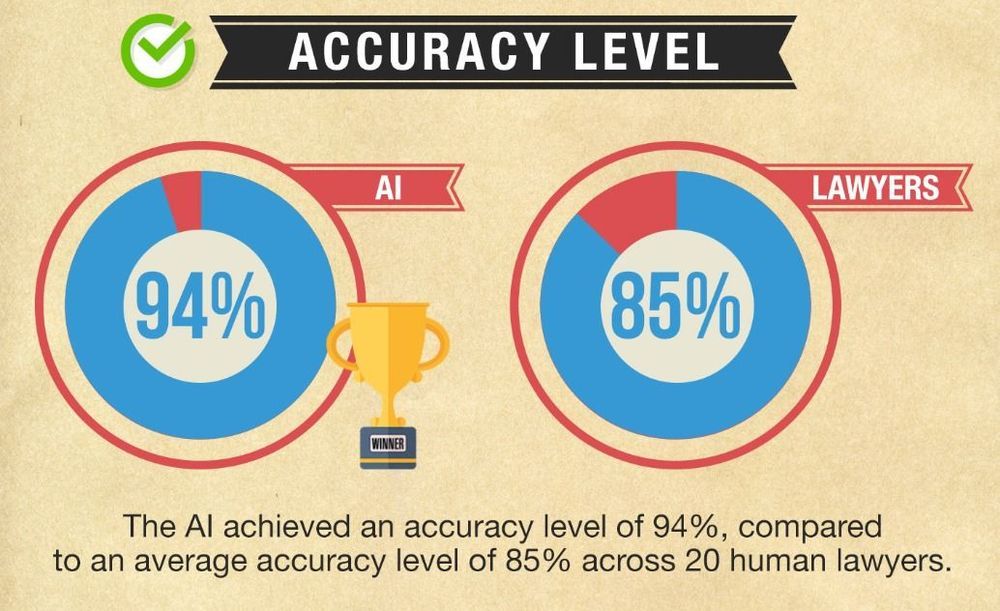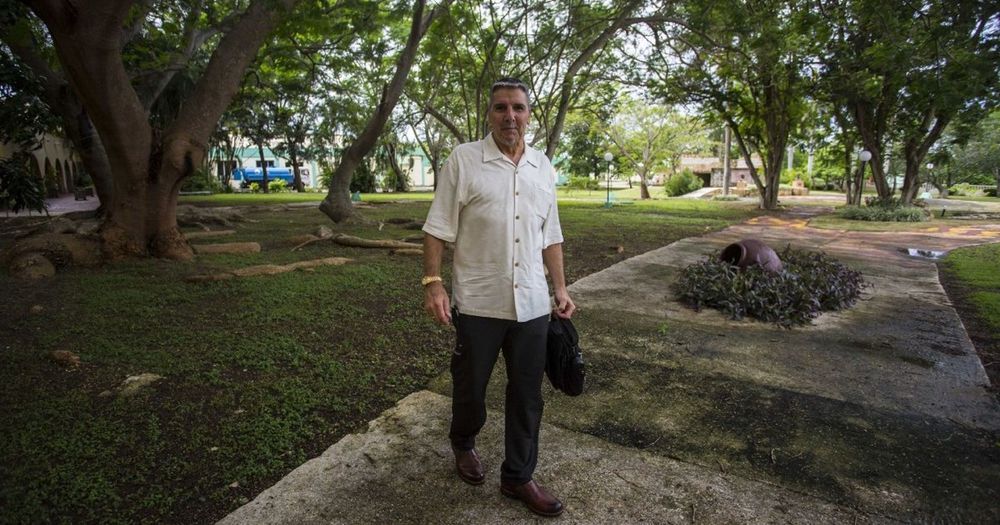Revival of disembodied organs raises slew of ethical and legal questions about the nature of death and consciousness.



Almost 5 years after Elon Musk allowed other manufacturers access to Tesla patents without fear of legal action – effectively making them open source – Toyota has announced that it’s opening up its vehicle electrification patent archive to help speed up the development and adoption of electric vehicles.

One persistent illusion is that physical objects only interact with other objects they are close to. This is called the principle of locality. We can express this more precisely by the law that the strengths of forces between any two objects falls off quickly—at least by some power of the distance between them. This can be explained by positing that the bodies do not interact directly, but only through the mediation of a field, such as an electromagnetic field, which propagat…
The intuitive idea that objects influence each other because they’re in physical proximity is soon to become another of those beliefs that turn out to be wrong when we look deeper.

Researchers from the Moscow Institute of Physics and Technology teamed up with colleagues from the U.S. and Switzerland and returned the state of a quantum computer a fraction of a second into the past. They also calculated the probability that an electron in empty interstellar space will spontaneously travel back into its recent past. The study is published in Scientific Reports.
“This is one in a series of papers on the possibility of violating the second law of thermodynamics. That law is closely related to the notion of the arrow of time that posits the one-way direction of time from the past to the future,” said the study’s lead author Gordey Lesovik, who heads the Laboratory of the Physics of Quantum Information Technology at MIPT.
“We began by describing a so-called local perpetual motion machine of the second kind. Then, in December, we published a paper that discusses the violation of the second law via a device called a Maxwell’s demon,” Lesovik said. “The most recent paper approaches the same problem from a third angle: We have artificially created a state that evolves in a direction opposite to that of the thermodynamic arrow of time.”

One of the perks of being President of the United States of America is that you get to submit your budget recommendations to the US Congress before any decisions are made. While it’s up to Congress to make the budget and the President to sign it into law, the recommendations for the next fiscal year are where the administration gets to set their agenda and announce to the world the direction it wants to go in.
Last year, the https://www.forbes.com/sites/startswithabang/2018/02/12/the-…e-science/” target=”_self” data-ga-track=” InternalLink: https://www.forbes.com/sites/startswithabang/2018/02/12/the-…e-science/”>Trump administration proposed cutting a number of Earth Science missions, ending NASA Astrophysics’ flagship mission for the 2020s, WFIRST, and eliminating NASA’s Office of Education. Then-acting administrator Robert Lightfoot https://www.nasa.gov/press-release/nasa-acting-administrator…t-proposal” target=”_blank” rel=” nofollow noopener noreferrer” data-ga-track=” ExternalLink: https://www.nasa.gov/press-release/nasa-acting-administrator…t-proposal”>put out a statement mentioning hard choices and an inability to do everything with a limited budget, but Congress overturned these cuts and restored funding for these programs. This year, the assault is even worse, and has a better chance of succeeding. Here’s why.

It was 100 times faster on a routine task.
In a recent study, LawGeex, a legal tech startup, challenged a group of 20 experienced lawyers to test their skills and knowledge against its AI-powered algorithm.
A legal battle
The group included associates and inhouse lawyers from global firms such as Goldman Sachs, Cisco and Alston & Bird, as well as general counsel and sole practitioners.



The phenomenon of ‘microdosing’, that is, regular ingestion of very small quantities of psychedelic substances, has seen a rapid explosion of popularity in recent years. Individuals who microdose report minimal acute effects from these substances yet claim a range of long-term general health and wellbeing benefits. There have been no published empirical studies of microdosing and the current legal and bureaucratic climate makes direct empirical investigation of the effects of psychedelics difficult. In Study One we conducted a systematic, observational investigation of individuals who microdose. We tracked the experiences of 98 microdosing participants, who provided daily ratings of psychological functioning over a six week period. 63 of these additionally completed a battery of psychometric measures tapping mood, attention, wellbeing, mystical experiences, personality, creativity, and sense of agency, at baseline and at completion of the study. Analyses of daily ratings revealed a general increase in reported psychological functioning across all measures on dosing days but limited evidence of residual effects on following days. Analyses of pre and post study measures revealed reductions in reported levels of depression and stress; lower levels of distractibility; increased absorption; and increased neuroticism. To better understand these findings, in Study Two we investigated pre-existing beliefs and expectations about the effects of microdosing in a sample of 263 naïve and experienced microdosers, so as to gauge expectancy bias. All participants believed that microdosing would have large and wide-ranging benefits in contrast to the limited outcomes reported by actual microdosers. Notably, the effects believed most likely to change were unrelated to the observed pattern of reported outcomes. The current results suggest that dose controlled empirical research on the impacts of microdosing on mental health and attentional capabilities are needed.
Citation: Polito V, Stevenson RJ (2019) A systematic study of microdosing psychedelics. PLoS ONE 14: e0211023. https://doi.org/10.1371/journal.pone.
Editor: Danilo Arnone, King’s College London, UNITED KINGDOM

Here’s an important story I wrote on #cryonics for Quartz about a recent tragedy of a young girl and society’s reluctance to give people rights after death. I think something like “Danielle’s Law” could be important moving forward:
Cryogenics is facing legal hurdles for people who want their bodies to be frozen for the future.